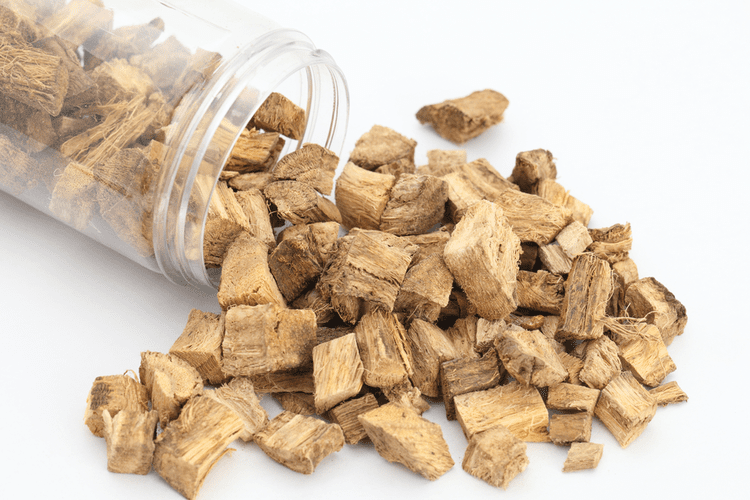Sober living
Too Much Alcohol Can Weaken Your Immune System
To date, there is little research on the impact alcohol has on COVID-19 recovery. However, common sense informs us not to drink when we have any active infection. Your body needs to focus all of its energy on the recovery and healing process. Yes, drinking alcohol can raise your chances of getting some types of cancer, like those in your mouth, throat, and liver.
Alcohol’s Interference with Immune Function
Alcohol also disrupts the gut barrier, allowing more bacteria to pass into the blood. These rogue bacteria can cause inflammation in the liver and may lead to liver damage. Excessive drinking may impair the function of immune cells in the lungs and upper respiratory system, leading to increased risk for pneumonia, tuberculosis, and acute respiratory distress syndrome, or ARDS.
- Health authorities, including the World Health Organization, have warned that excessive alcohol intake can increase complications from respiratory illnesses, including COVID-19.
- If you drink alcohol a lot, it can hurt your liver, heart, and even your brain.
Weakened Immunity and Increased Disease Risk
But don’t despair – there are plenty of options to choose from if you want a drink but want to avoid the negative side effects. It also decreases the production of cytokines, essential molecules your immune system uses to protect against infections. Although the damage cannot be completely reversed, quitting alcohol may prevent further damage and allow the body to begin the healing process. Genetic variations in enzymes involved in alcohol metabolism can influence the rate at which alcohol is processed and cleared from the body. This can affect the duration and intensity of alcohol’s effects on the immune system.
What are the long-term effects of alcohol on the immune system?

The morning after a night of over-imbibing can cause some temporary effects on your brain. Things like trouble concentration, slow reflexes and sensitivity to bright lights and loud sounds are standard signs of a hangover, and evidence of alcohol’s effects on your brain. That’s because your body already has processes in place that allow it to store excess proteins, carbohydrates and fats. So, your system prioritizes getting rid of alcohol before it can turn its attention to its other work. In reality, there’s no evidence that drinking beer (or your alcoholic beverages of choice) actually contributes to belly fat. Cirrhosis, on the other hand, is irreversible and can lead to liver failure and liver cancer, even if you abstain from alcohol.
- These disruptions caused by alcohol can leave the body more vulnerable to infections.
- Beyond these factors, genetics, body mass, overall health, and co-existing conditions also shape how an individual’s immune system responds to alcohol.
- “When you’re feeling run down or like you might get sick, you want to be well hydrated so that all the cells in your body have enough fluid in them and can work really well,” Favini says.
As a result, it was concluded that alcohol does leave the body vulnerable to infectious diseases. Before diving into the effects of wine on immune function, it’s crucial to understand what the immune system is and how it operates. Our immune system comprises a complex network of cells, tissues, and organs that work together to defend the body against harmful pathogens, such as bacteria, viruses, and parasites. The liver is designed to regenerate its healthier tissue, but with long-term alcohol consumption, the process can be disrupted.
- While occasional drinking may have minimal effects, chronic consumption can lead to long-lasting damage and increased susceptibility to various health issues.
- In the study of Xiao et al. 52 transplanted microbiota in mice from alcoholic to healthy, developed emotional symptoms, such as anxiety, which occurs during abstinence.
- Immune cells, like the ones in your respiratory system that clear out pathogens, can get damaged.
- Yes, alcohol affects the immune system differently in men and women due to variations in body composition, metabolism, and hormone levels.
The Immune System through the Lens of Alcohol Intake and Gut Microbiota
By recognizing the impact of altered cytokine production and disrupted gut microbiota, individuals can make informed choices about their alcohol consumption and take steps to support their immune health. It’s important to note that moderation in alcohol consumption is key, as excessive or chronic alcohol intake can have more pronounced effects on immune function. Additionally, adopting a healthy lifestyle, including a balanced diet, regular exercise, and stress management, can also contribute to a robust immune system. Chronic alcohol consumption has a profound and detrimental impact on the immune system, leading to a state of immune suppression that significantly increases the risk of infections and diseases. When alcohol is consumed regularly and in large quantities, it disrupts the delicate balance of immune responses, impairing both innate and adaptive immunity.
This disruption can lead to a decrease in beneficial bacteria and an overgrowth of harmful bacteria. Dysbiosis can compromise the integrity of the intestinal barrier, allowing harmful bacteria and toxins to enter the bloodstream. This phenomenon, often referred to as “leaky gut,” triggers an immune response, resulting in chronic inflammation and immune dysfunction. One of the significant long-term effects of alcohol on the immune system is an increased susceptibility to infections. Alcohol impairs the body’s ability to defend against pathogens, making it easier for infections to take hold. Understanding the immediate effects of alcohol on the immune system highlights the importance of moderation in alcohol consumption.
Let’s explore how drinking alcohol can lead to slowed wound healing and impaired recovery from illness. It impairs their ability to migrate to sites of infection or inflammation, hindering their ability to eliminate harmful microorganisms effectively. These disruptions caused by alcohol can leave https://helpunrivalled.co.uk/how-to-reset-weed-tolerance-fast-and-find-stronger/ the body more vulnerable to infections. Alcohol can weaken the immune system by reducing the number and function of certain immune cells, making it harder for the body to fight off infections and diseases. To understand how alcohol interacts with your immune system, it is helpful to think of the immune response as a multi-faceted process. When a pathogen invades the body, several steps must occur to neutralize it.
The combination of immune suppression and increased inflammation creates an environment conducive to tumor growth and metastasis. The immune system’s response to alcohol consumption is complex and multifaceted, involving both immediate and long-term effects. When alcohol is ingested, it is metabolized primarily heroin addiction in the liver, but its byproducts can trigger systemic inflammation and disrupt immune cell function. These effects not only weaken the body’s ability to fight off illnesses but also contribute to the development of chronic diseases, such as liver disease and certain cancers. Understanding how alcohol interacts with the immune system is crucial for addressing its broader health impacts. Cytokines are like the communication network of your immune system, signaling molecules that tell cells what to do and when.

How can Cymbiotika products help support my immune health?
However, alcohol suppresses these regulatory mechanisms, allowing pro-inflammatory signals to dominate. This imbalance not only sustains inflammation but also weakens the does alcohol affect your immune system immune system’s ability to respond effectively to actual threats, such as infections or injuries. Alcohol alters the makeup of your gut microbiome — home to trillions of microorganisms performing several crucial roles for your health — and affects those microorganisms’ ability to support your immune system. It seems that drinking alcohol may also damage the immune cells that line the intestines and serve as the first line of defense against bacteria and viruses. Clinicians have long observed an association between excessive alcohol consumption and adverse immune-related health effects such as susceptibility to pneumonia. No one wants to participate in activities that suppress the body’s immune system.
Lifestyle Changes to Boost Immune Function
Products sold on this website are not intended to diagnose, treat, cure, or prevent any disease. Information provided by this website or this company is not a substitute for direct, individual medical treatment or advice. It is the responsibility of you and your healthcare providers to make all decisions regarding your health.
Alcohol consumption can also disrupt sleep, which is vital for a well-functioning immune system. Sleep deprivation has been linked to increased susceptibility to infections, as it impairs the production of protective immune cells and antibodies. Alcohol can trigger an inflammatory response in the body, leading to chronic inflammation, which is detrimental to immune function. Chronic inflammation can tax the immune system and make it less effective at responding to actual infections.
